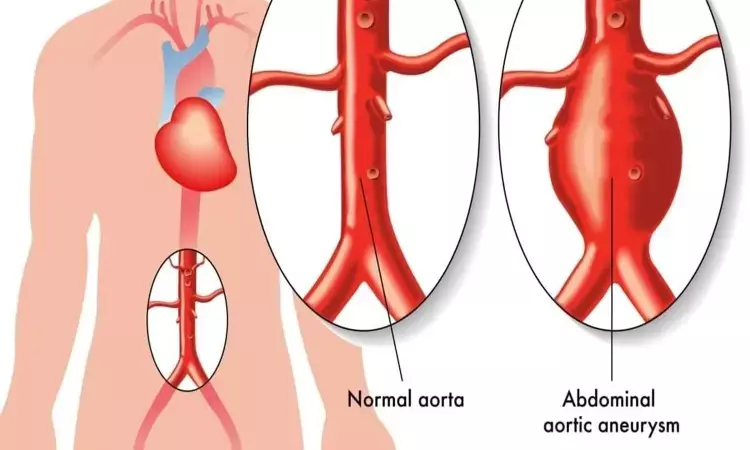- Home
- Medical news & Guidelines
- Anesthesiology
- Cardiology and CTVS
- Critical Care
- Dentistry
- Dermatology
- Diabetes and Endocrinology
- ENT
- Gastroenterology
- Medicine
- Nephrology
- Neurology
- Obstretics-Gynaecology
- Oncology
- Ophthalmology
- Orthopaedics
- Pediatrics-Neonatology
- Psychiatry
- Pulmonology
- Radiology
- Surgery
- Urology
- Laboratory Medicine
- Diet
- Nursing
- Paramedical
- Physiotherapy
- Health news
- Fact Check
- Bone Health Fact Check
- Brain Health Fact Check
- Cancer Related Fact Check
- Child Care Fact Check
- Dental and oral health fact check
- Diabetes and metabolic health fact check
- Diet and Nutrition Fact Check
- Eye and ENT Care Fact Check
- Fitness fact check
- Gut health fact check
- Heart health fact check
- Kidney health fact check
- Medical education fact check
- Men's health fact check
- Respiratory fact check
- Skin and hair care fact check
- Vaccine and Immunization fact check
- Women's health fact check
- AYUSH
- State News
- Andaman and Nicobar Islands
- Andhra Pradesh
- Arunachal Pradesh
- Assam
- Bihar
- Chandigarh
- Chattisgarh
- Dadra and Nagar Haveli
- Daman and Diu
- Delhi
- Goa
- Gujarat
- Haryana
- Himachal Pradesh
- Jammu & Kashmir
- Jharkhand
- Karnataka
- Kerala
- Ladakh
- Lakshadweep
- Madhya Pradesh
- Maharashtra
- Manipur
- Meghalaya
- Mizoram
- Nagaland
- Odisha
- Puducherry
- Punjab
- Rajasthan
- Sikkim
- Tamil Nadu
- Telangana
- Tripura
- Uttar Pradesh
- Uttrakhand
- West Bengal
- Medical Education
- Industry
Rare case of Horse-Shoe-kidney and Abdominal aortic aneurysm reported

In a recent find, researches have reported that the management of Abdominal Aortic Aneurysm and Horse-Shoe-Kidney can be done by open surgical repair with a transperitoneal approach without a section of the isthmus and with great outcomes after surgery.
This interesting and the unique case has been published in the International Journal of Surgery Case Reports.
Horseshoe Kidney (HSK) is probably the most common of all renal fusion abnormalities. However, the association with abdominal aortic aneurysm (AAA) is rare and occurred in 0,12% of patient affected by AAA, and twice as common in men as in women according to previous studies. However, the management of AAA associated with HSK presents a special challenge during vascular surgery, given the close spatial relationship and the frequent renal arterial variation that accompanies HSK.
Therefore, the best strategy to approach in such cases remains an issue of continued debate.
"In our case, we choose the transperitoneal technique given the high angulation of the neck with no renal arteries abnormalities and also because it's the most used technique in our experiences, the outcomes were great and the patient adhere completely to the treatment and is very grateful and satisfied", says Ayoub Bounssir from the Vascular Surgery Departement, Ibn Sina University Hospital Center, Souissi, Rabat, Morocco.
The patient was a 66-year-old man with a history of hypertension under Angiotensin-converting enzyme (ACE), coronary angioplasty, and transurethral resection of bladder tumor in complete remission. Radiographical evaluation (Computed tomography) revealed an 11.2 cm infrarenal AAA associated with an HSK with a wide parenchymatous isthmus lying anterior to the aneurysm. Initially, the patient had normal renal function with a serum creatinine of 1.00 mg/dL.
"Given the highly angulated aortic neck we choose open surgery. The operation was performed through a long midline incision by our chief surgeon. The transperitoneal dissection along the Treitz ligament revealed a large aneurysm covered by the isthmus in its upper third. The dissection of the aortic neck and the individualization of renal arteries was difficult given the deflected angulated neck and the descendant trajectory of the renal arteries", describes Bounssir.
"We couldn't recognize the limits between the isthmus and the renal parenchyma so we decided to avoid the isthmus section and its related complications. Common iliac arteries were desiccated", he further added.
As a result, both common iliac arteries were free from aneurysm and calcifications, so distal anastomoses were performed. The procedure was well tolerated by the patient, with an uncomplicated postoperative course and no deterioration of renal function.
The authors further noted that "The concomitant presence of HSK and AAA presents a real challenge for the vascular surgeon imposing the mastery of the different vascular technique both endovascular and open repair to deal correctly with this rare condition."
"The choice of the technique still controversial and must take into consideration the degree of urgency and the anatomical abnormalities of the aneurysm and the different renal arteries. However, we believe that avoiding the isthmus section is the most important advice if open repair is preferred", they concluded.
Dr. Nandita Mohan is a practicing pediatric dentist with more than 5 years of clinical work experience. Along with this, she is equally interested in keeping herself up to date about the latest developments in the field of medicine and dentistry which is the driving force for her to be in association with Medical Dialogues. She also has her name attached with many publications; both national and international. She has pursued her BDS from Rajiv Gandhi University of Health Sciences, Bangalore and later went to enter her dream specialty (MDS) in the Department of Pedodontics and Preventive Dentistry from Pt. B.D. Sharma University of Health Sciences. Through all the years of experience, her core interest in learning something new has never stopped. She can be contacted at editorial@medicaldialogues.in. Contact no. 011-43720751
Dr Kamal Kant Kohli-MBBS, DTCD- a chest specialist with more than 30 years of practice and a flair for writing clinical articles, Dr Kamal Kant Kohli joined Medical Dialogues as a Chief Editor of Medical News. Besides writing articles, as an editor, he proofreads and verifies all the medical content published on Medical Dialogues including those coming from journals, studies,medical conferences,guidelines etc. Email: drkohli@medicaldialogues.in. Contact no. 011-43720751


